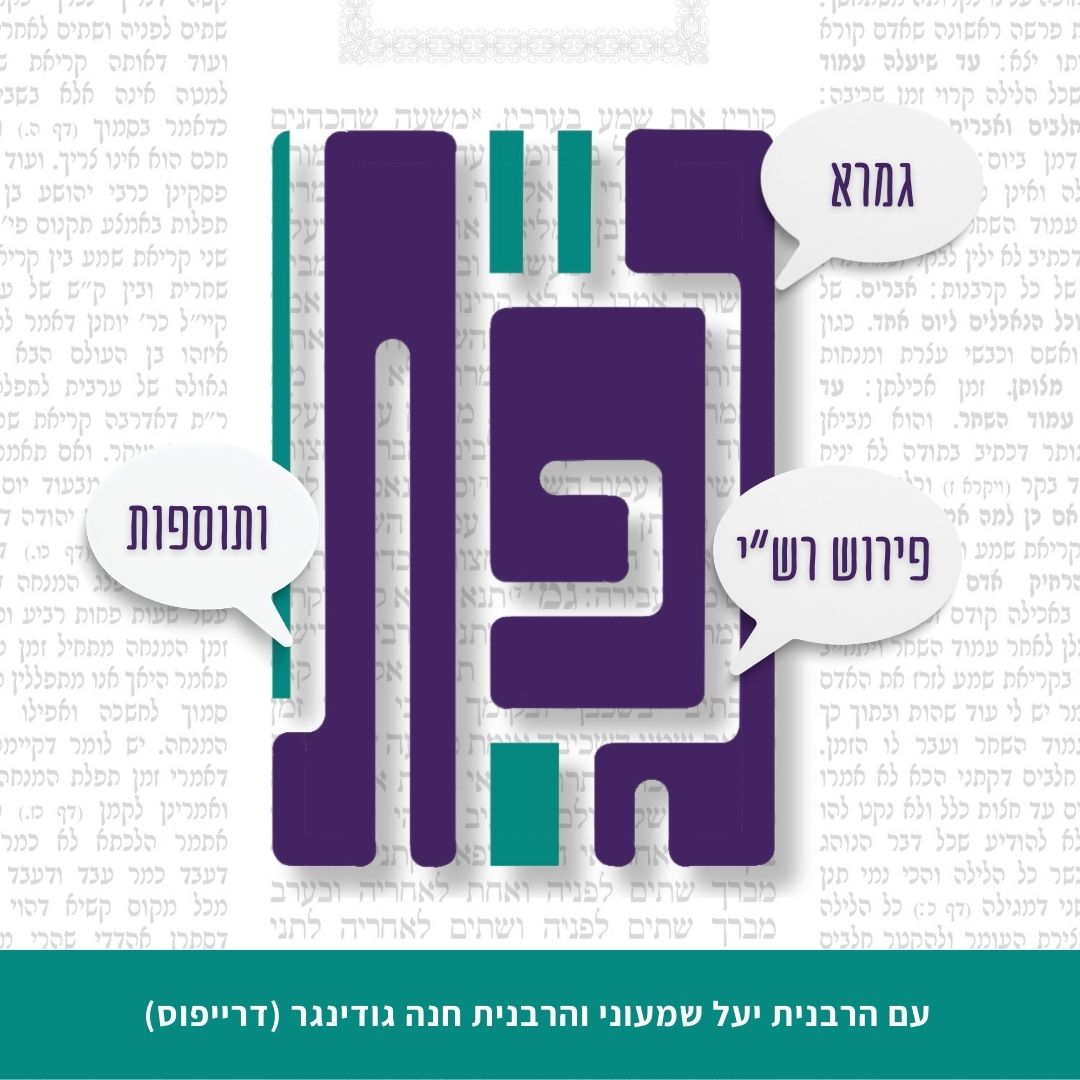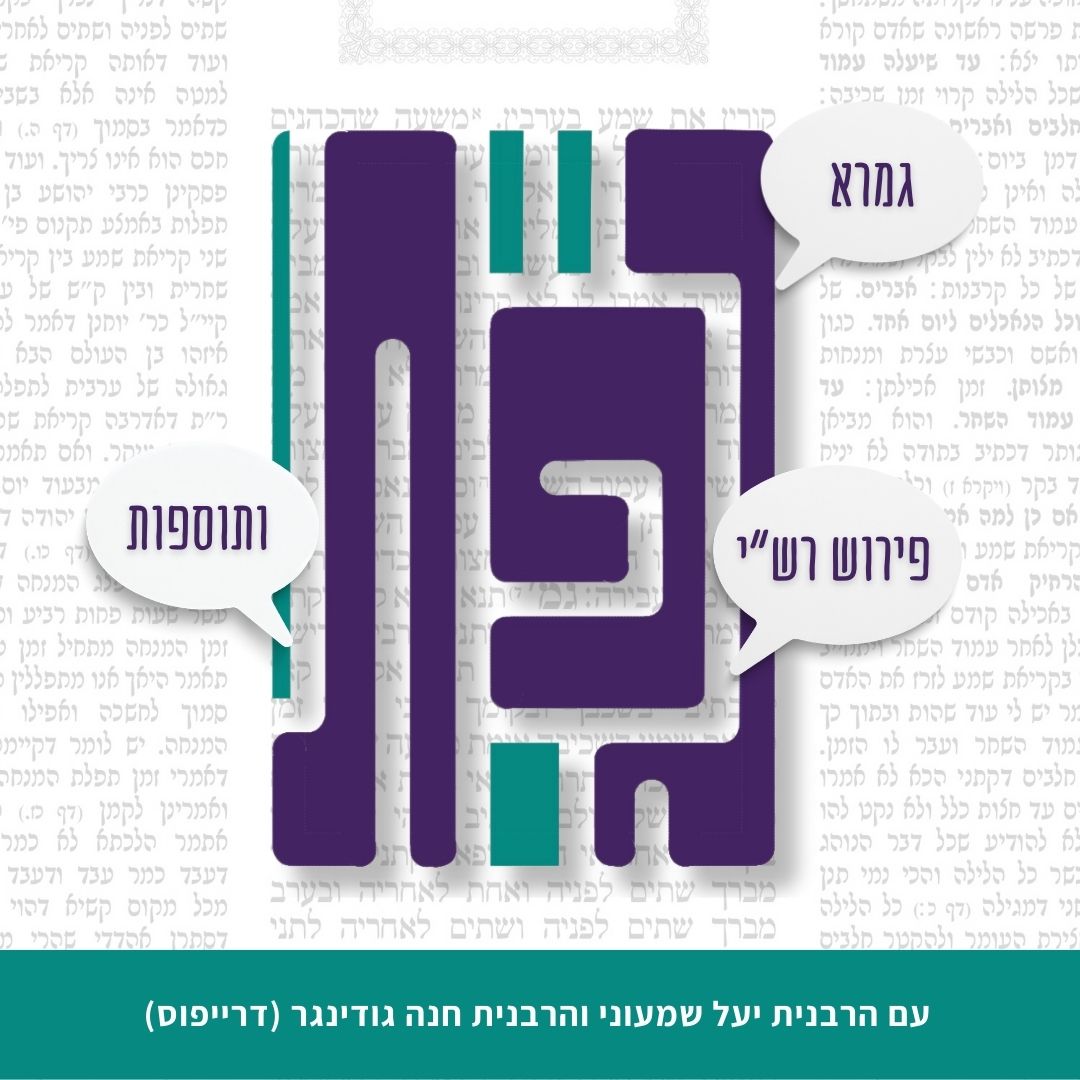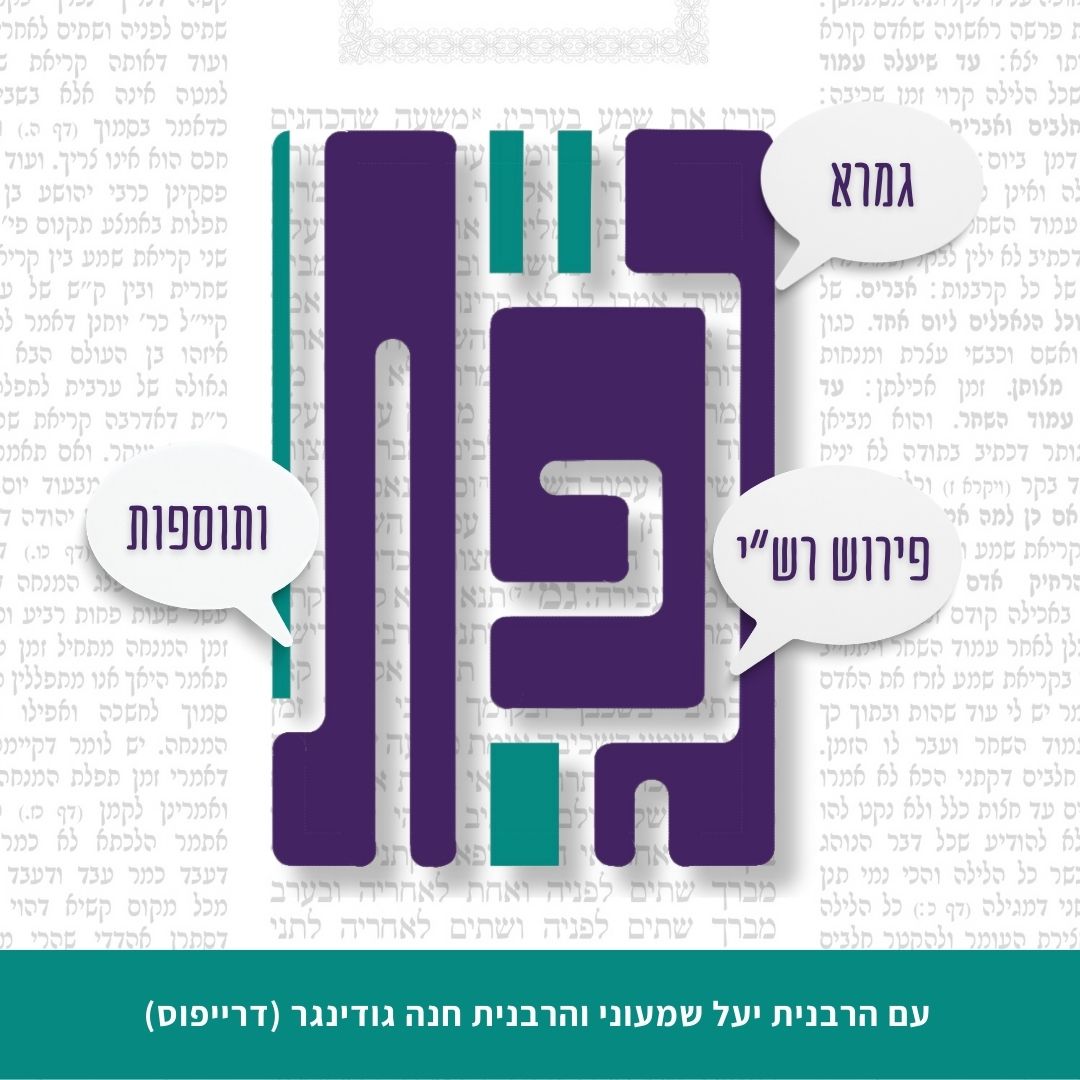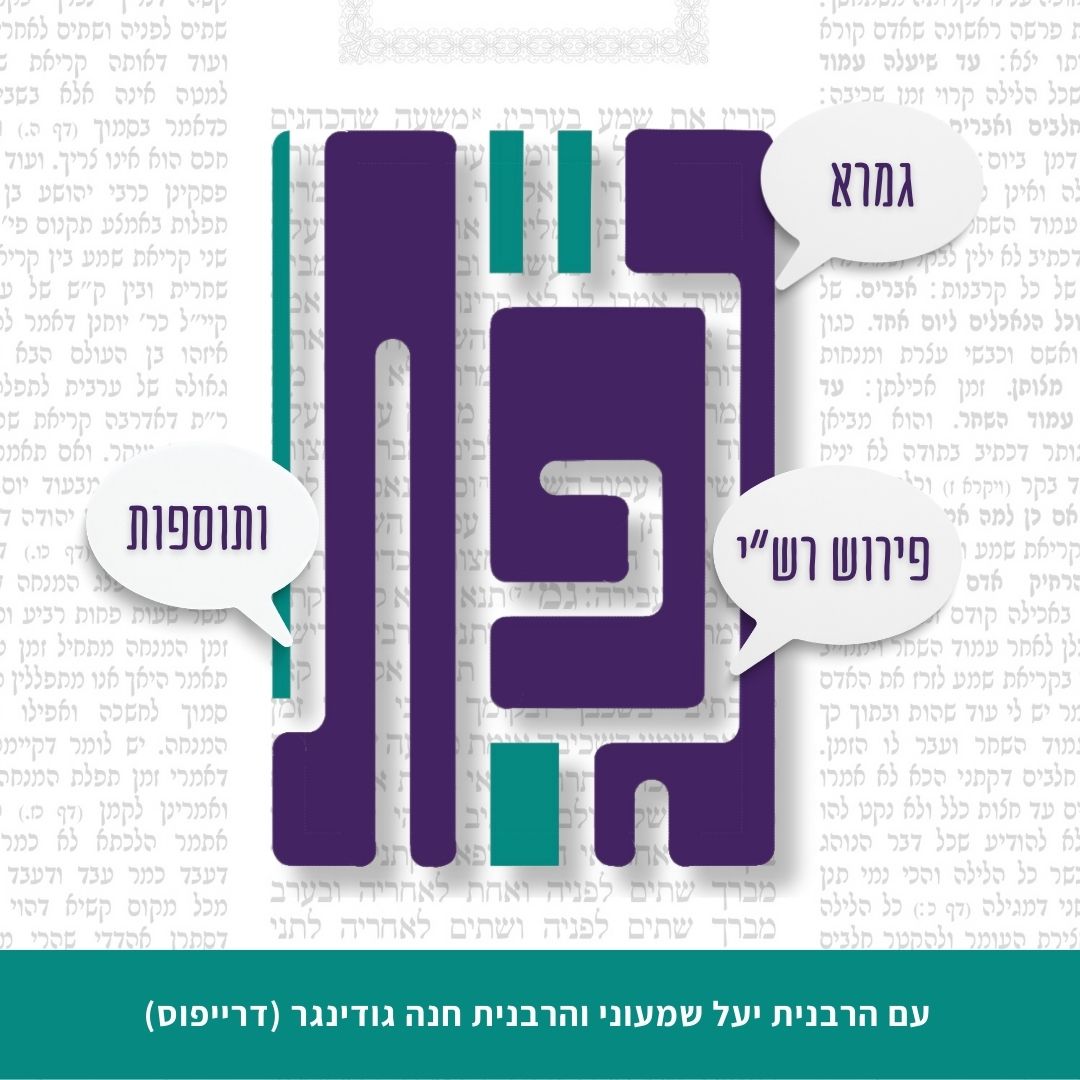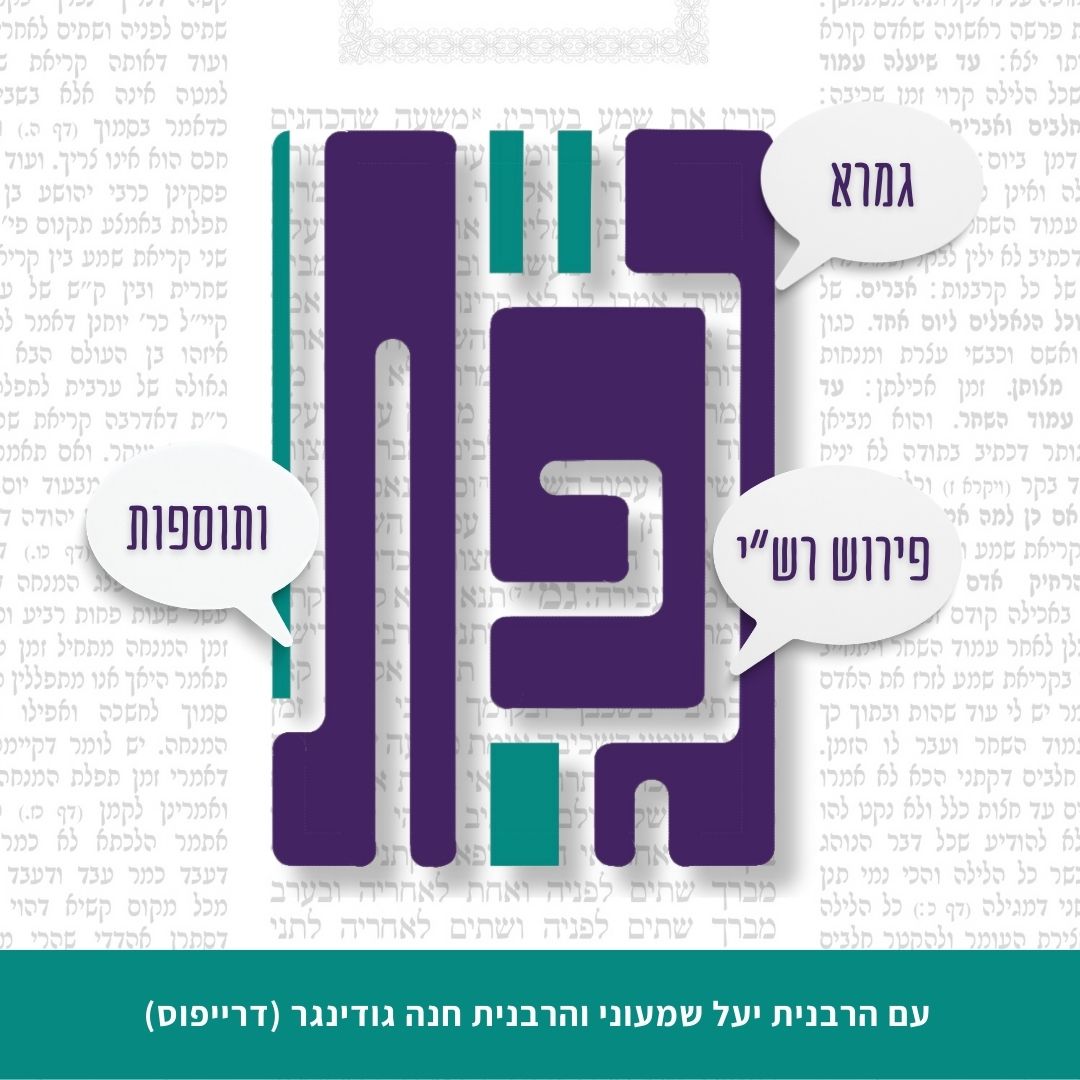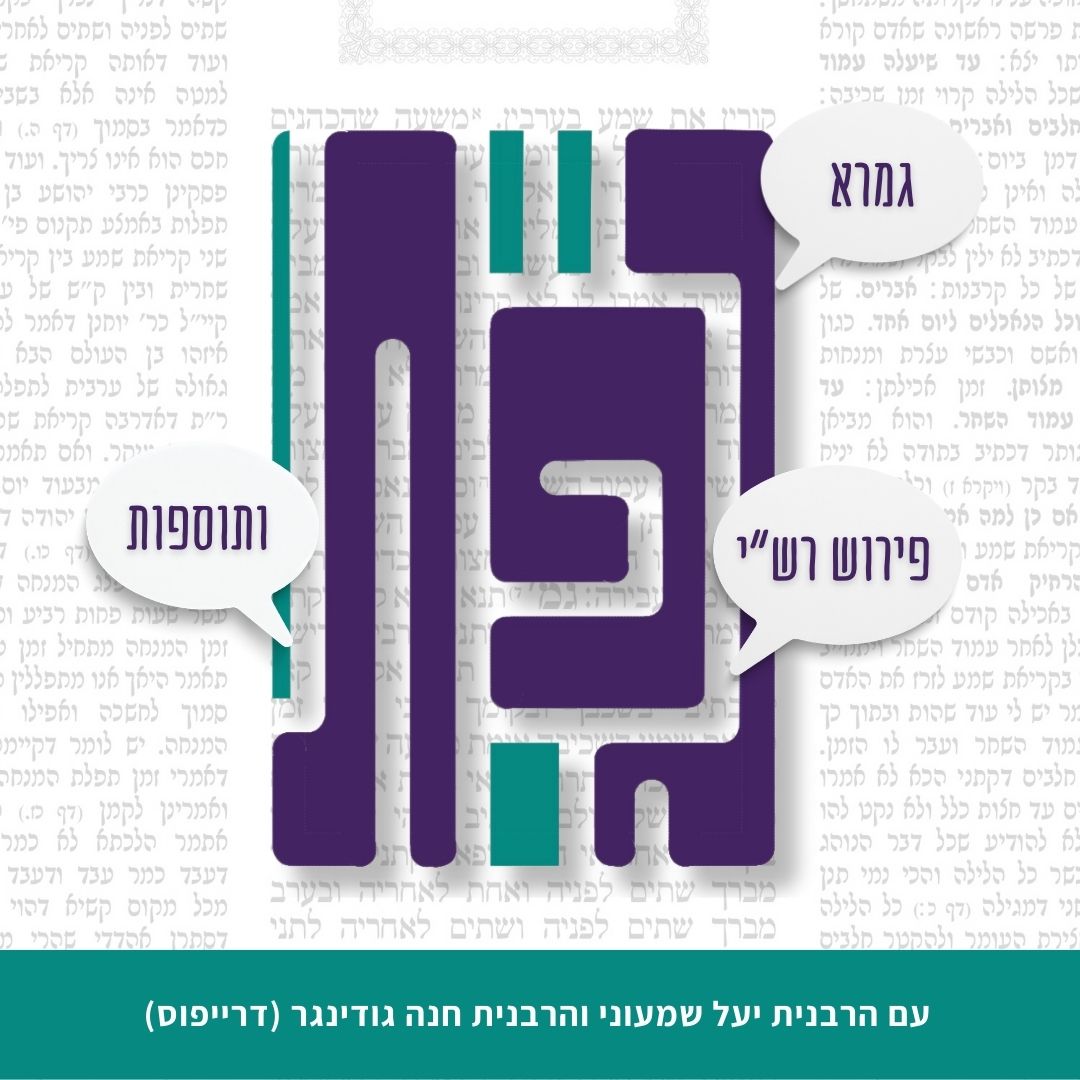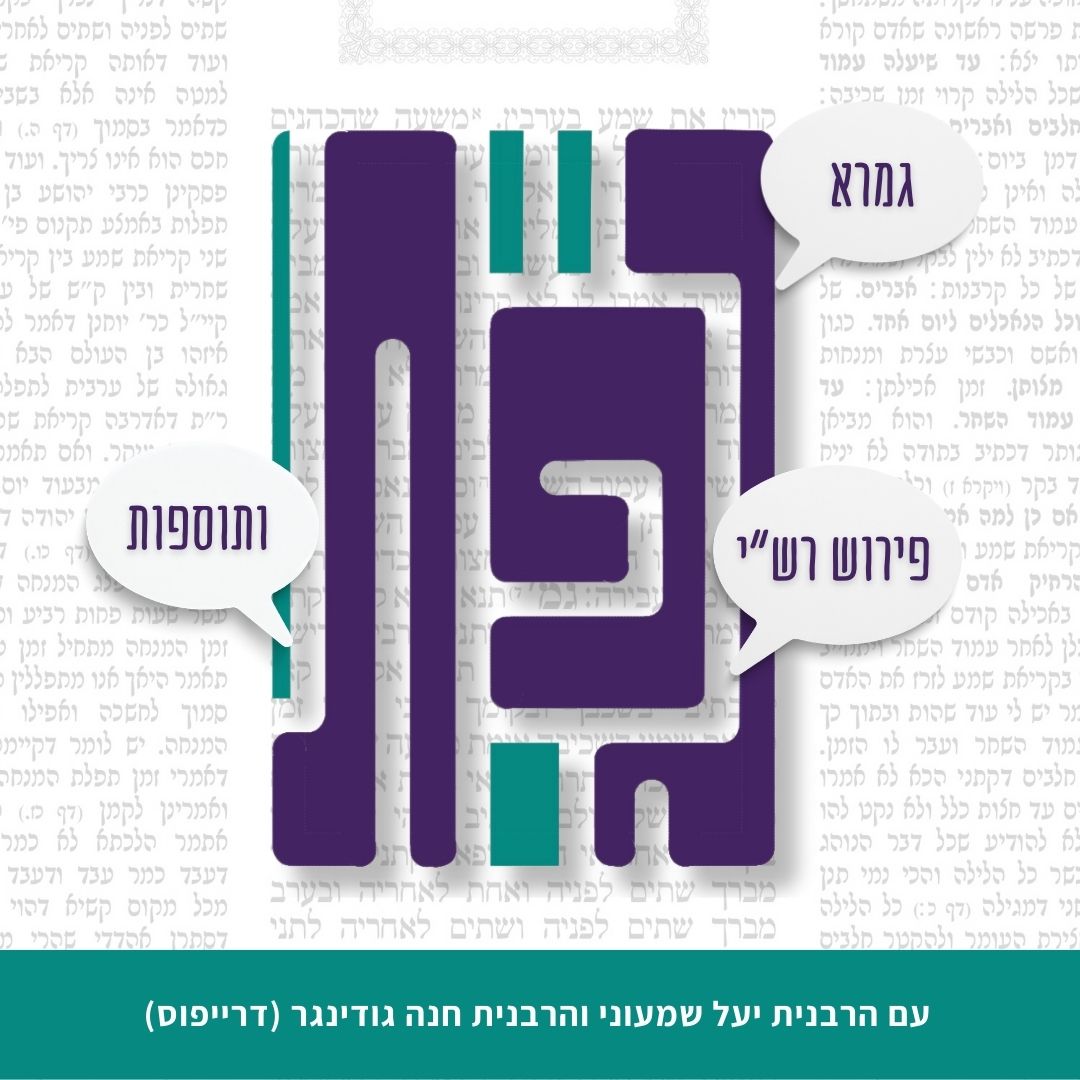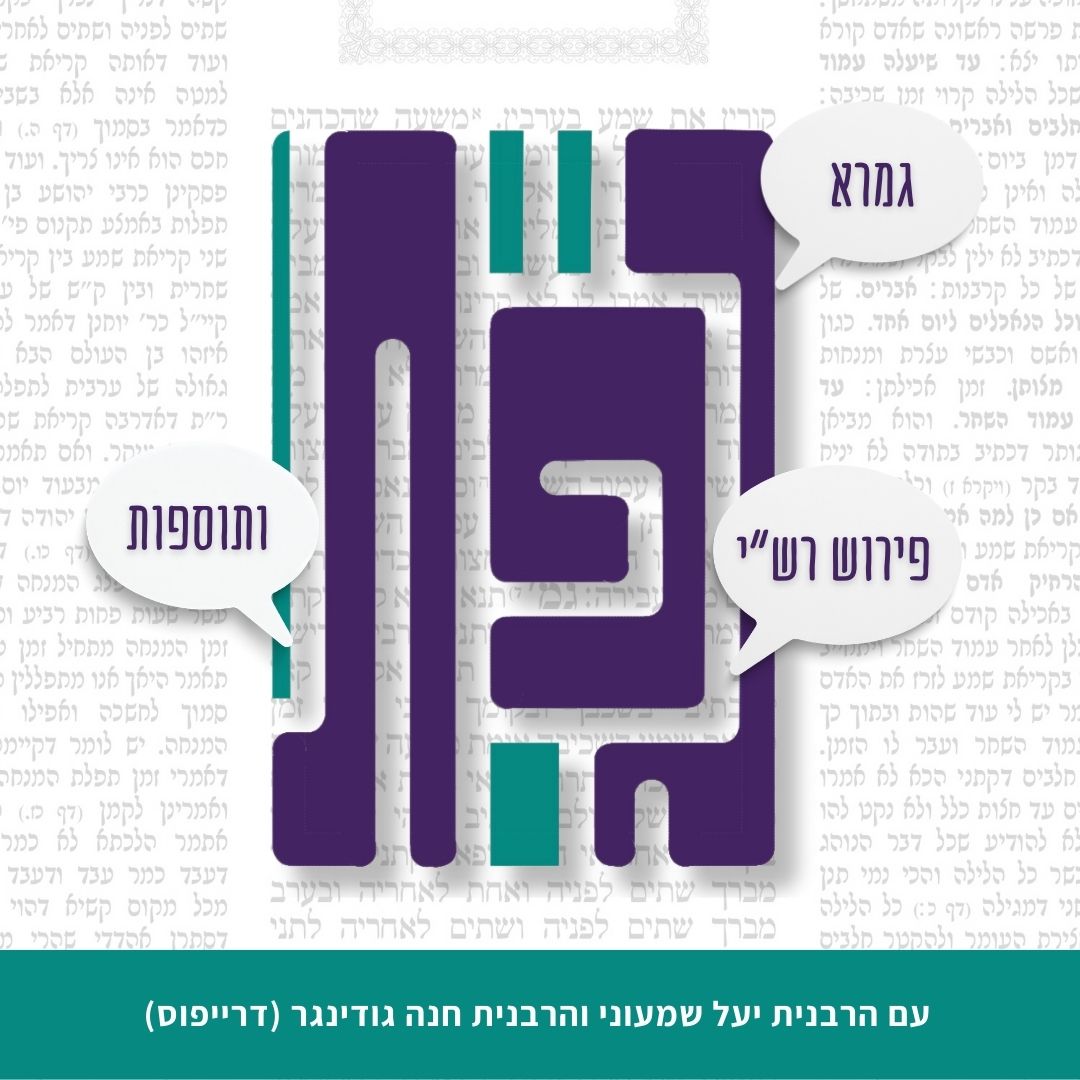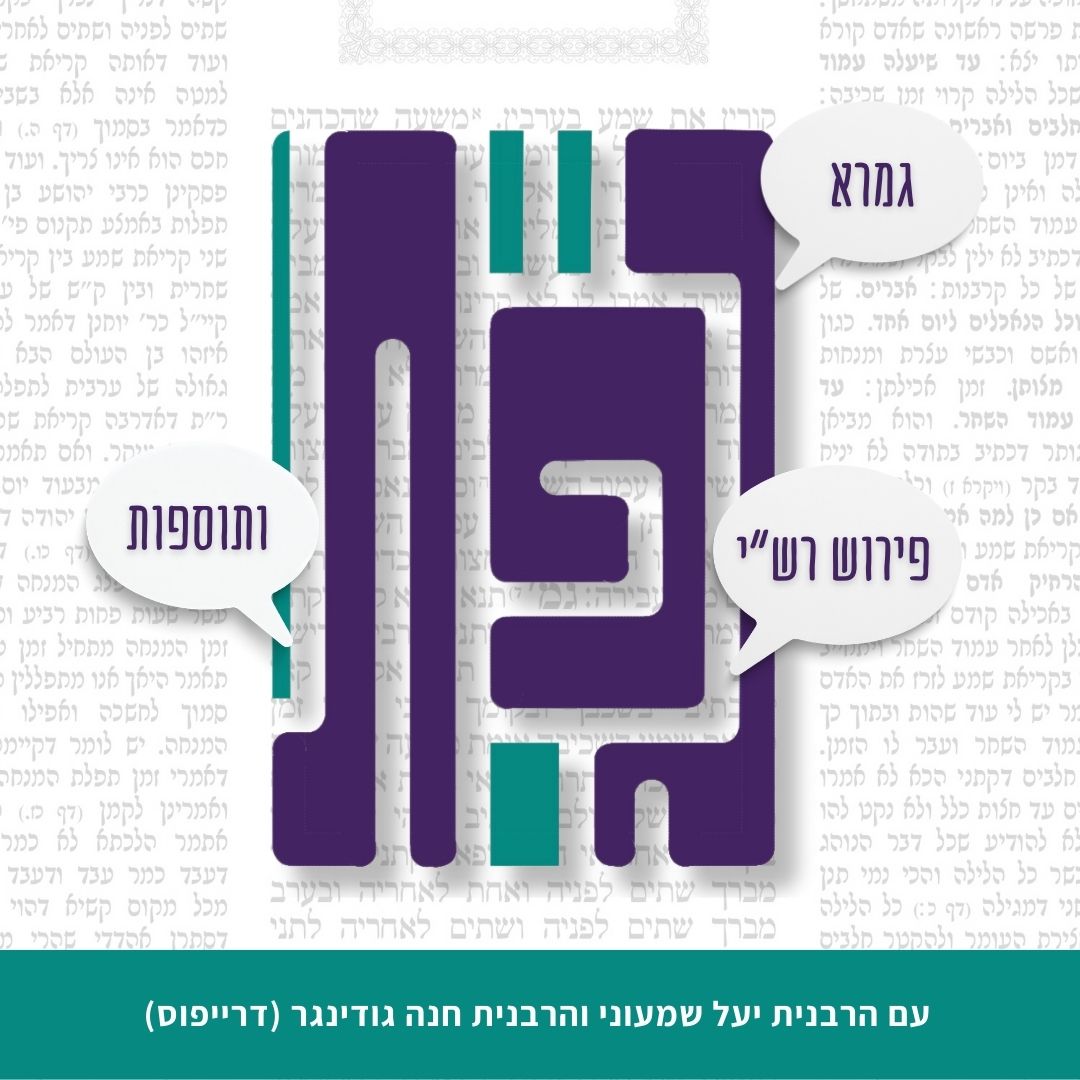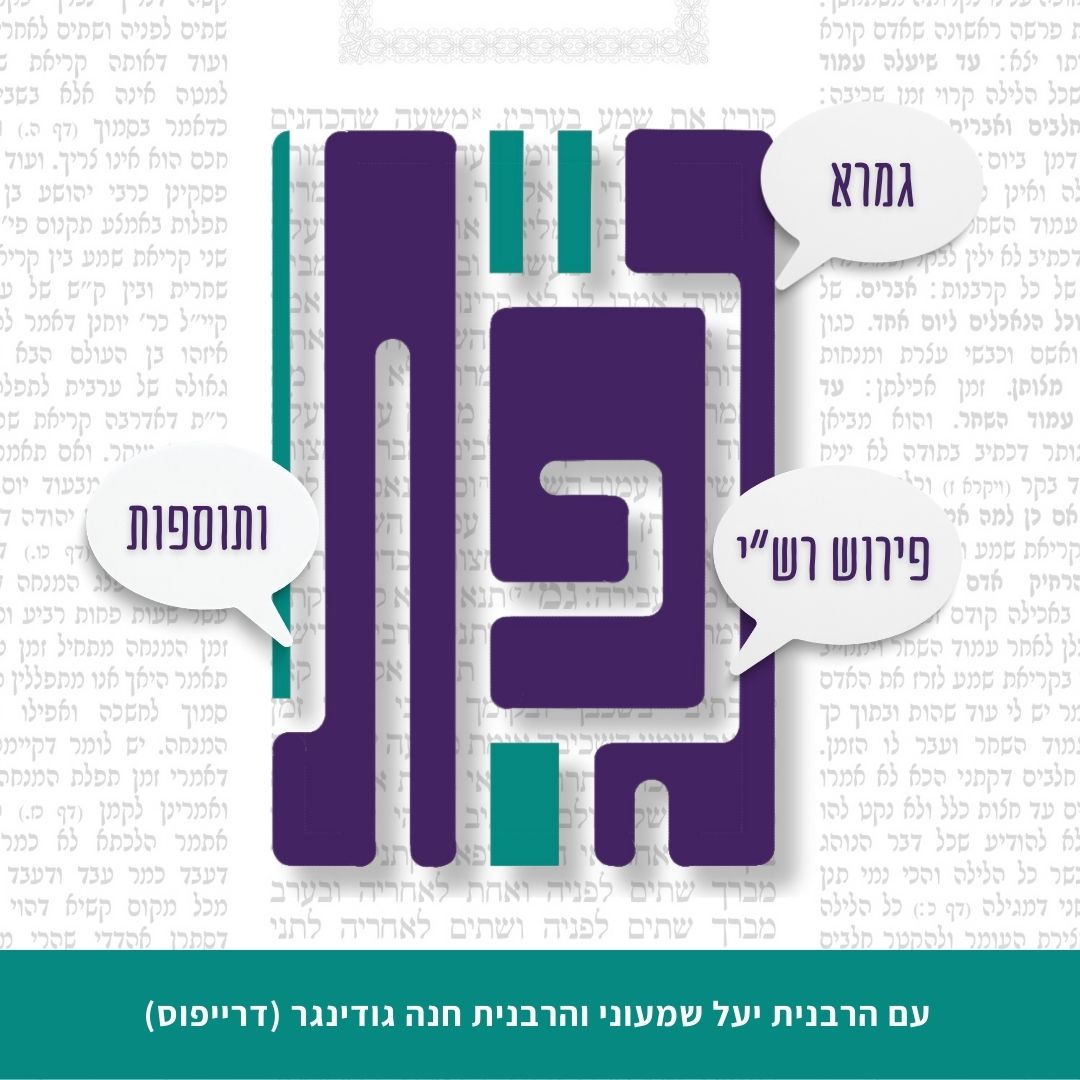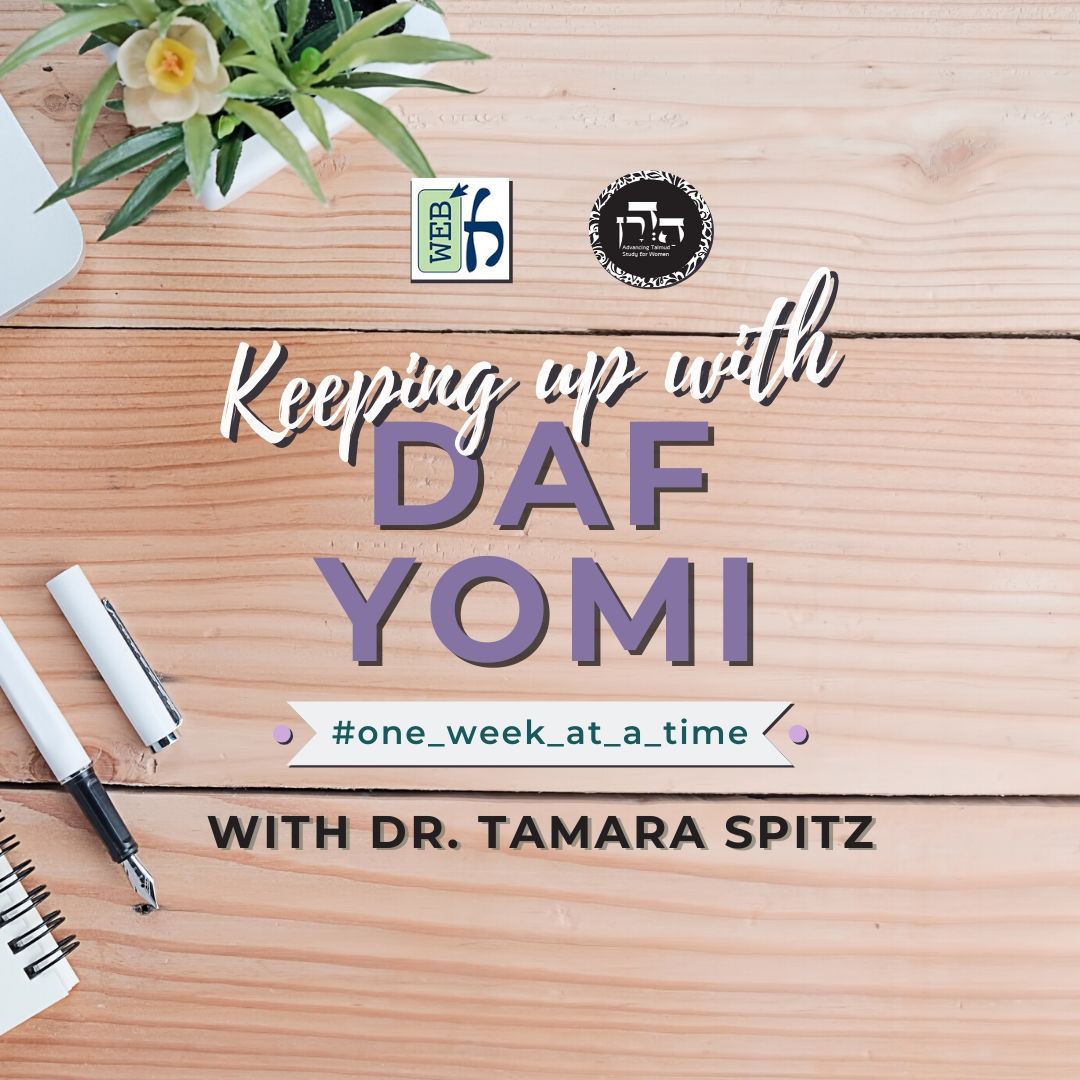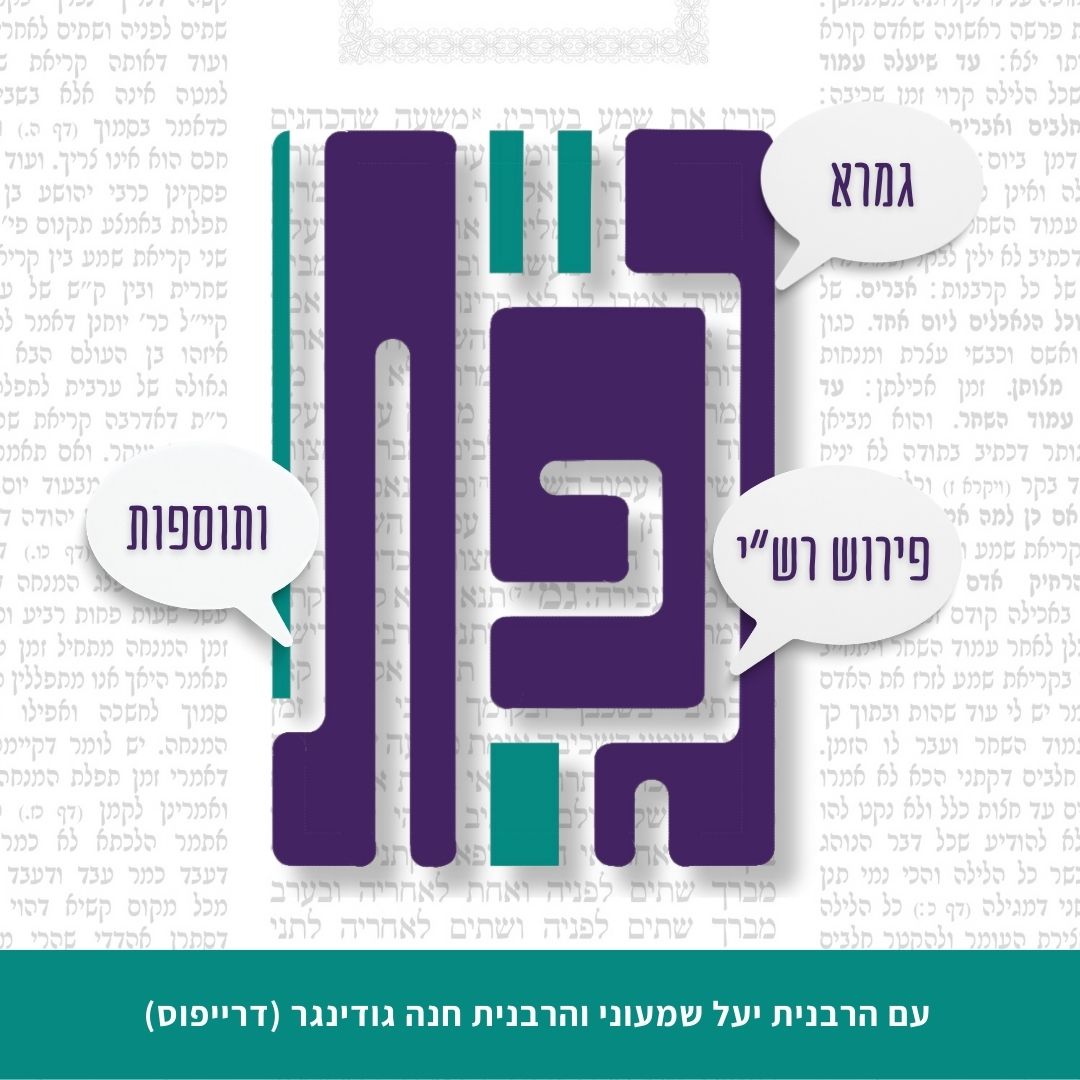בבא מציעא יט
אִירְכַס לֵיהּ גִּיטָּא בֵּי מִדְרְשָׁא. אֲמַר: אִי סִימָנָא – אִית לִי בְּגַוֵּיהּ, אִי טְבִיעוּת עֵינָא – אִית לִי בְּגַוֵּיהּ. אַהְדְּרוּהּ נִיהֲלֵיהּ. אֲמַר: לָא יָדַעְנָא אִי מִשּׁוּם סִימָנָא אַהְדְּרוּהּ נִיהֲלִי, וְקָא סָבְרִי סִימָנִין דְּאוֹרָיְיתָא. אִי מִשּׁוּם טְבִיעוּת עֵינָא אַהְדְּרוּהּ נִיהֲלִי, וְדַוְקָא צוּרְבָּא מִדְּרַבָּנַן. אֲבָל אִינִישׁ דְּעָלְמָא – לָא.
lost a bill of divorce, which had been given to him to deliver, in the study hall. When it was found, he said: If they request a distinguishing mark, I have one for it. If it depends on visual recognition, I have methods of recognition for it. They returned the bill of divorce to him. He said afterward: I do not know if they returned it to me due to the distinguishing mark that I supplied, and they hold that distinguishing marks are used to return lost items by Torah law, or if they returned it to me due to my visual recognition, and it was specifically because I am a Torah scholar, as Torah scholars are relied upon when they say that they recognize an item, but an ordinary person would not be relied upon to recognize the item and have it returned to him.
גּוּפָא: מָצָא גֵּט אִשָּׁה בַּשּׁוּק, בִּזְמַן שֶׁהַבַּעַל מוֹדֶה – יַחְזִיר לְאִשָּׁה. אֵין הַבַּעַל מוֹדֶה – לֹא יַחְזִיר לֹא לָזֶה וְלֹא לָזֶה.
§ The Gemara discusses the matter itself cited above: If one found a woman’s bill of divorce in the marketplace, in a case when the husband admits that he wrote and gave it, the finder must return it to the wife. If the husband does not admit to this, the finder may neither return it to this one, the husband, nor to that one, the wife.
בִּזְמַן שֶׁהַבַּעַל מוֹדֶה מִיהָא יַחְזִיר לָאִשָּׁה. וְלֵיחוּשׁ שֶׁמָּא כָּתַב לִיתֵּן בְּנִיסָן וְלֹא נָתַן לָהּ עַד תִּשְׁרֵי, וַאֲזַל בַּעַל זַבֵּין פֵּירֵי מִנִּיסָן וְעַד תִּשְׁרֵי, וּמַפְּקָא לְגִיטָּא דִּכְתִיב בְּנִיסָן, וְאָתְיָא לְמִטְרַף לָקוֹחוֹת שֶׁלֹּא כַּדִּין.
In any event, the baraita states that when the husband admits that he wrote and gave it, the finder must return it to the wife. The Gemara challenges: But let us suspect that perhaps he wrote the bill of divorce intending to give it in Nisan, but did not give it to her until Tishrei, and the husband went and sold the produce of his wife’s property in the interim, between Nisan and Tishrei, since the divorce had not yet taken effect. And the wife might then produce the bill of divorce, which he wrote in Nisan, and come to repossess the produce from the purchasers unlawfully.
הָנִיחָא לְמַאן דְּאָמַר כֵּיוָן שֶׁנָּתַן עֵינָיו לְגָרְשָׁהּ שׁוּב אֵין לַבַּעַל פֵּירוֹת – שַׁפִּיר. אֶלָּא לְמַאן דְּאָמַר יֵשׁ לַבַּעַל פֵּירוֹת עַד שְׁעַת נְתִינָה, מַאי אִיכָּא לְמֵימַר?
This works out well according to the one who says that once he has decided to divorce her, the husband no longer has the rights to his wife’s produce. Since the husband had no right to sell the produce, the wife repossessed it rightfully. But according to the one who says that the husband has rights to his wife’s produce until the actual time of giving the bill of divorce, what is there to say?
כִּי אָתְיָא לְמִטְרַף אָמְרִינַן לַהּ: אַיְיתַי רְאָיָה אֵימַת מְטָא גִּיטָּא לְיָדְךָ.
The Gemara answers: When she comes to repossess the produce, we say to her: First bring proof as to when the bill of divorce came into your possession, and then we will allow you to repossess the sold produce.
וּמַאי שְׁנָא מִשְּׁטָרֵי חוֹב? דִּתְנַן: מָצָא שְׁטָרֵי חוֹב, אִם יֵשׁ בָּהֶן אַחְרָיוּת נְכָסִים – לֹא יַחְזִיר. וְאוֹקֵימְנָא כְּשֶׁחַיָּיב מוֹדֶה, וּמִשּׁוּם שֶׁמָּא כָּתַב לִלְווֹת בְּנִיסָן וְלֹא לָוָה עַד תִּשְׁרֵי וְקָא טָרֵיף לָקוֹחוֹת שֶׁלֹּא כַּדִּין.
The Gemara asks: But in what way is it different from promissory notes? As we learned in a mishna (12b): With regard to one who found promissory notes, if they include a property guarantee for the loan, he may not return them to the creditor. And we interpreted the mishna as referring to a case where the liable party admits that he has not yet repaid the debt, and the reason the promissory note cannot be returned is due to the possibility that perhaps he wrote it intending to borrow money in Nisan, but ultimately did not borrow it until Tishrei, and the creditor might therefore use the promissory note to unlawfully repossess property that the debtor sold between Nisan and Tishrei from the purchasers.
הָתָם נָמֵי לִיהְדַּר, וְכִי אָתֵי לְמִטְרַף נֵימָא לֵיהּ: אַיְיתִי רְאָיָה אֵימַת מְטָא שְׁטַר חוֹב לְיָדָךְ!
According to the Gemara’s suggestion with regard to a bill of divorce, there, in the case of a promissory note, it should also be returned, and when the creditor comes to repossess the debtor’s property that was sold in the interim, let the court say to him: First bring proof as to when the promissory note came into your possession.
אָמְרִי, הָכָא גַּבֵּי גֵּט אִשָּׁה אָתֵי לוֹקֵחַ וְתָבַעה, אָמַר: הַאי דְּ[אַ]הְדְּרוּהּ נִיהֲלַהּ רַבָּנַן לְגִיטָּא, מִשּׁוּם דְּלָא תִּעֲגִין וְתֵיתִיב. הַשְׁתָּא דְּקָא אָתְיָא לְמִטְרַף – תֵּיזִל וְתַיְתֵי רְאָיָה אֵימַת מְטָא גִּיטָּא לִידַהּ.
The Sages say that it is not comparable. Here, with regard to a woman’s bill of divorce, the purchaser will come and demand that the wife prove when it was given to her, as he will say to himself: The fact that the Sages returned the bill of divorce to her was only so that she would not dwell alone as a deserted wife and not be able to remarry for lack of a bill of divorce. Now that she is coming to repossess the property her husband sold me, she should go and bring proof as to when the bill of divorce came into her possession.
הָכָא גַּבֵּי שְׁטַר חוֹב לָא אָתֵי לוֹקֵחַ וְתָבַע, [אָמַר] מִדְּאַהְדְּרוּהּ נִיהֲלֵיהּ רַבָּנַן לִשְׁטַר חוֹב, פְּשִׁיטָא לְמַאי הִלְכְתָא אַהְדְּרוּהּ נִיהֲלֵיהּ – לְמִטְרַף הוּא, שְׁמַע מִינַּהּ קָמוּ רַבָּנַן בְּמִילְּתָא, וּמִקַּמֵּי דִּידִי מְטָא שְׁטָרָא לִידֵיהּ.
By contrast, here, with regard to a promissory note, the purchaser will not come and demand proof, because he will infer from the fact that the Sages returned the promissory note to him that it is obviously valid from the date written in it. After all, for what halakha did the court return it to him? It was clearly in order to repossess property with it. Therefore, he will conclude from it: The Sages clarified the matter and determined that, in fact, this promissory note came into the possession of the creditor prior to my purchase of property from the debtor.
שִׁחְרוּרֵי עֲבָדִים וְכוּ׳. תָּנוּ רַבָּנַן: מָצָא שְׁטַר שִׁחְרוּר בְּשׁוּק, בִּזְמַן שֶׁהָרַב מוֹדֶה – יַחְזִיר לָעֶבֶד, אֵין הָרַב מוֹדֶה – לֹא יַחְזִיר לֹא לָזֶה וְלֹא לָזֶה.
§ The mishna teaches: Bills of manumission of slaves that are found should not to be returned. The Sages taught in a baraita: If one found a bill of manumission in the marketplace, in a case when the master admits that he gave the bill to the slave, one should return it to the slave. If the master does not admit to it, one should neither return it to this person, the master, nor to that person, the slave.
בִּזְמַן שֶׁהָרַב מוֹדֶה מִיהָא יַחְזִיר לָעֶבֶד, וְאַמַּאי? נֵיחוּשׁ שֶׁמָּא כָּתַב לִיתֵּן לוֹ בְּנִיסָן וְלֹא נָתַן לוֹ עַד תִּשְׁרֵי, וַאֲזַל עַבְדָּא וּקְנָה נִכְסִין מִנִּיסָן וְעַד תִּשְׁרֵי, וַאֲזַיל הָרַב וְזַבְּנִינְהוּ וּמַפֵּיק לֵיהּ לְשִׁחְרוּר דִּכְתִב בְּנִיסָן, וְקָא טָרֵיף לָקוֹחוֹת שֶׁלֹּא כַּדִּין.
The Gemara asks: In any event, the baraita states that when the master admits that he gave the bill of manumission to the slave, the one who found it should return it to the slave. But why should he return it? Let us suspect that perhaps he wrote the bill of manumission intending to give it to him in Nisan, but he did not give it to him until Tishrei, and the slave went and bought property in the interim, between Nisan and Tishrei, at which time he was still a slave, in which case the property belongs to his master, and the master then went and sold that property. And if the bill of manumission is returned to the slave, he might produce the bill of manumission, which his master wrote in Nisan, in order to claim that the property was not his master’s to sell, and repossess the property from the purchasers unlawfully.
הָנִיחָא לְמַאן דְּאָמַר זְכוּת הוּא לָעֶבֶד שֶׁיּוֹצֵא מִתַּחַת רַבּוֹ לְחֵירוּת, וּכְאַבָּיֵי דְּאָמַר: עֵדָיו בַּחֲתוּמָיו זָכִין לֵיהּ, שַׁפִּיר. אֶלָּא לְמַאן דְּאָמַר חוֹב הוּא לָעֶבֶד שֶׁיּוֹצֵא מִתַּחַת רַבּוֹ לְחֵירוּת, מַאי אִיכָּא לְמֵימַר?
This works out well according to the one who says that it is in a slave’s interest to leave his master’s authority and attain freedom and in accordance with the opinion of Abaye, who says that when a document serves the interests of its intended recipient, its witnesses, with their signatures, acquire it on his behalf. Accordingly, a slave attains freedom at the moment his bill of manumission is signed, even if it is given to him at a later date. Therefore, the halakha in the baraita works out well. But according to the one who says that it is against a slave’s interests to leave his master’s authority and attain freedom, what is there to say?
דְּכִי אָתֵי לְמִטְרַף אָמְרִינַן לֵיהּ: אַיְיתִי רְאָיָה אֵימַת מְטָא שִׁחְרוּר לְיָדָךְ.
The Gemara answers that when the slave comes to repossess the property, we say to him: Bring proof as to when the bill of manumission reached your possession and you were freed.
דְּיָיתֵיקֵי מַתָּנָה וְכוּ׳. תָּנוּ רַבָּנַן: אֵיזוֹ הִיא דְּיָיתֵיקֵי – דָּא תְּהֵא לְמֵיקַם וְלִהְיוֹת שֶׁאִם מֵת נְכָסָיו לִפְלוֹנִי. מַתָּנָה – כֹּל שֶׁכָּתוּב בּוֹ ״מֵהַיּוֹם וּלְאַחַר מִיתָה״.
§ The mishna teaches: If one found wills [deyaytiki] or deeds of gift, he should not return them. The Sages taught in a baraita: What is considered a deyaytiki and is collected by the designated recipient after the death of the giver? It is a deed that states: This deed will be to stand [da tehe lemeikam] and exist as proof that if this person dies, his property is to be given to so-and-so. An ordinary deed of gift, by contrast, is any deed in which it is written: This gift is given from today and after the death of the giver.
אַלְמָא אִי כְּתִיבָא ״מֵהַיּוֹם וּלְאַחַר מִיתָה״ הוּא דְּקָנֵי, וְאִי לָא – לָא קָנֵי?!
The Gemara asks: Apparently, only if it is written in the deed: From today and after the death of the giver, the recipient acquires the gift, and otherwise, he does not acquire the gift. Is there no deed of gift that is effective even without the clause: And after my death?
אָמַר אַבָּיֵי, הָכִי קָאָמַר: אֵיזוֹ הִיא מַתְּנַת בָּרִיא שֶׁהִיא כְּמַתְּנַת שְׁכִיב מְרַע, דְּלָא קָנֵי אֶלָּא לְאַחַר מִיתָה, כֹּל שֶׁכָּתוּב בָּהּ ״מֵהַיּוֹם וּלְאַחַר מִיתָה״.
Abaye said that this is what the baraita is saying: What deed of gift of a healthy person is considered like the deed of gift of a person on his deathbed, in that the recipient acquires it only after the death of the giver? It is any deed in which it is written: This gift is given from today and after the giver’s death.
טַעְמָא דְּלָא אָמַר ״תְּנוּ״. הָא אָמַר ״תְּנוּ״ – נוֹתְנִין.
§ The mishna teaches that these documents may not be returned to the one who is presumed to have lost them, as perhaps the one who wrote them reconsidered and decided not to deliver them. The Gemara infers: The reason that these deeds may not be returned is that the one who wrote them doesn’t say to the finder: Give them to their intended recipient. But if he says: Give them, the finder must give them.
וּרְמִינְהוּ: מָצָא דְּיָיתֵקָאוֹת, אַפּוֹתֵיקָאוֹת וּמַתָּנוֹת, אַף עַל פִּי שֶׁשְּׁנֵיהֶם מוֹדִין – לֹא יַחְזִיר לֹא לָזֶה וְלֹא לָזֶה!
And the Gemara raises a contradiction to that inference from a baraita that states that if one found wills, or deeds of designated repayment, or deeds of gift, even if both the one who wrote the deed and its intended recipient agree that it is valid, he should return it neither to this person nor to that person.
אָמַר רַבִּי אַבָּא בַּר מֶמֶל: לָא קַשְׁיָא,
Rabbi Abba bar Memel said: This is not difficult.
הָא בְּבָרִיא, וְהָא בִּשְׁכִיב מְרַע.
This halakha applies in a case of a gift given by a healthy person, and that halakha applies in a case of a gift given by a person on his deathbed.
מַתְנִיתִין דְּקָתָנֵי: הָא אָמַר תְּנוּ נוֹתְנִין – בִּשְׁכִיב מְרַע, דְּבַר מִהְדַּר הוּא.
The Gemara explains: The mishna that teaches that if the giver says: Give it to its intended recipient, the finder must give it, applies in a case of a gift given by a person on his deathbed, who is capable of retracting his gift.
דְּאָמְרִינַן, מַאי אִיכָּא לְמֵימַר: דִּלְמָא כַּתְבַהּ מֵעִיקָּרָא לְהַאי וְאִמְּלִיךְ וְלָא יַהֲבַהּ נִיהֲלֵיהּ, וַהֲדַר כַּתְבַהּ לְאִינִישׁ אַחֲרִינָא וְיַהֲבַיהּ נִיהֲלֵיהּ – הַשְׁתָּא קָא הָדַר בֵּיהּ מֵהָהוּא דְּיַהֲבַהּ נִיהֲלֵיהּ.
Therefore, the finder must give the deed to the recipient, as we say: What is there to say as a reason for not returning the deed? One might suggest that perhaps the giver initially wrote a deed of gift for this person, but then reconsidered and did not give it to him, and then he wrote a second deed of gift for another person and thereby gave his property to him. And now that his first deed was found, he wishes to retract his gift to that second person to whom he gave the property, by dishonestly validating the first deed.
אִי בְּמַתְּנַת בָּרִיא יַהֲבַהּ לֵיהּ – לֵית לֵיהּ פְּסֵידָא, דְּכִי נָפְקָא תַּרְתֵּי, בָּתְרָיְיתָא זָכֵי, דְּהָא הֲדַר בֵּיהּ מִקַּמָּיְיתָא.
This attempt to retract his latter gift will not succeed. If he gave his property to the recipient of the second deed of gift as the gift of a healthy person, then the second recipient incurs no loss by the first deed being given to its intended recipient. This is because, when the two deeds are produced in court, the recipient of the later one acquires the property, as the owner evidently retracted the first gift. Since one who gave away his property while on his deathbed can subsequently retract his gift, the second recipient acquires the property.
אִי בְּמַתְּנַת שְׁכִיב מְרַע נָמֵי יַהֲבַהּ נִיהֲלֵיהּ, לֵית בַּהּ פְּסֵידָא – דְּבָתְרָיְיתָא זָכֵי, דְּקָא הָדַר בֵּיהּ מִקַּמָּיְיתָא.
So too, if he gave it to the second person as the gift of a person on his deathbed, he incurs no loss. This is because the recipient of the later deed acquires the property, as the giver evidently retracted his gift to the first recipient.
כִּי קָתָנֵי בְּבָרַיְיתָא: אַף עַל פִּי שֶׁשְּׁנֵיהֶם מוֹדִים לֹא יַחְזִיר לֹא לָזֶה וְלֹא לָזֶה – בְּבָרִיא, דְּלָאו בַּר מִהְדַּר הוּא,
And when the baraita teaches that even if both the one who wrote the deed and its intended recipient agree that it is valid, the one who found it should neither return it to this person nor to that person, it is referring to the case of a gift given by a healthy person, who is not able to retract his gift.
דְּאָמְרִינַן: דִּלְמָא כַּתְבַהּ לְהַאי מֵעִיקָּרָא וְאִמְּלִיךְ וְלָא יַהֲבַהּ לֵיהּ, וַהֲדַר כַּתְבַהּ לְאִינִישׁ אַחֲרִינָא וְיַהֲבַהּ לֵיהּ – הַשְׁתָּא קָא הָדַר בֵּיהּ מֵהָהוּא דְּיַהֲבַהּ לֵיהּ וְסָבַר: מִהְדָּר לָא מָצֵינָא הָדַרְנָא בִּי, אֵימַר לְהוּ דַּאֲנָא לְהַאי יַהֲבִתַהּ, וְנַיהְדְּרוּ נִיהֲלֵיהּ כְּתָבָא, כִּי הֵיכִי דְּכִי מַפֵּיק הַאי כְּתָבָא, דְּקָדֵים זָכֵה בֵּיהּ הוּא.
Therefore, one may not return the deed, as we say that perhaps the giver initially wrote a deed of gift for this person but then reconsidered and did not give it to him, and then he wrote a second deed of gift for another person and thereby gave his property to him; and now he wishes to retract his gift to that second person to whom he gave the property, thinking: Since I cannot retract the gift legally, I will say to the court that I gave the first deed of gift to this first person, and they will return the deed of gift to him, in order that when he produces this deed of gift, which is dated earlier, he will thereby acquire the property.
אֶלָּא אָמְרִינַן לֵיהּ אֲנַן: הַאי כְּתָבָא לָא יָהֲבִינַן לֵיהּ לְהַאי. דִּלְמָא מִכְתָּב כְּתַבְתְּ, מֵיהָב לָא יְהַבְתְּ נִיהֲלֵיהּ, וִיהַבְתַּהּ לְאִינִישׁ אַחֲרִינָא וְקָא הָדְרַתְּ בֵּיהּ. אִי לָא יְהַבְתַּהּ לְאִינִישׁ אַחֲרִינָא וְקָא בָּעֵית דְּתִתְּבַהּ לְהַאי, כְּתֹב לֵיהּ הַשְׁתָּא כְּתָבָא אַחֲרִינָא וְיַהֲבֵיהּ נִיהֲלֵיהּ, דְּאִי יָהֲבַתְּ לְאִינִישׁ אַחֲרִינָא לֵית בַּהּ פְּסֵידָא, דְּקָדֵים זָכֵי.
Rather, we say to the giver: We will not give this document to this person, as perhaps you wrote it but did not give it to him, and then you gave the property to another person, and you now wish to retract your gift to him unlawfully. Therefore, if in fact you did not give this property as a gift to another person, and you wish to return it to this person, then do the following: Write another deed of gift for him now and give it to him, so that if you did previously give the property to another person, he will incur no loss, as the earlier recipient acquires the gift.
מַתְקֵיף לַהּ רַב זְבִיד: וְהָא אִידֵּי וְאִידֵּי דְּיָיתֵקָאוֹת קָא תָנֵי! אֶלָּא אָמַר רַב זְבִיד: הָא וְהָא בִּשְׁכִיב מְרַע, וְלָא קַשְׁיָא: הָא בֵּיהּ, וְהָא בִּבְרֵיהּ!
Rav Zevid objects to this distinction between the mishna and baraita, asking: But don’t this mishna and that baraita both teach halakhot with regard to wills? How can Rabbi Abba bar Memel explain that the baraita is referring to the gift of a healthy person? Rather, Rav Zevid said that both this mishna and that baraita are referring to the gift of a person on his deathbed, and nevertheless, the contradiction between them is not difficult; this mishna is referring to him, the giver himself, who authorizes the return of the will to its intended recipient, and that baraita is referring to a case where the giver died, and his son is the one who is authorizing the return of the will.
דְּקָא אָמַר ״תְּנוּ״ נוֹתְנִין, בְּדִידֵיהּ דְּבַר מִהְדָּר הוּא, דְּאָמְרִינַן: אִי נָמֵי יַהֲבַהּ לְאִינִישׁ אַחֲרִינָא לֵית בַּהּ פְּסֵידָא, דְּקַמָּא וּבָתְרָא – בָּתְרָא זָכֵי, דְּהָא הֲדַר בֵּיהּ מִקַּמָּא.
The Gemara explains: The mishna, which indicates that if the giver says: Give it to the recipient, the finder must give it to him, is referring to a case where the giver himself authorizes giving the will, as he is capable of retracting it. Therefore, there is no harm in giving the will to the recipient, as we say that even if in the meantime he already gave the property to another person, the latter recipient incurs no loss. This is because in a case where there are two wills, a first one and a last one, the recipient of the last one acquires the property, as the owner evidently retracted the first will.
כִּי קָא תָנֵי בְּבָרַיְיתָא: אַף עַל פִּי שֶׁשְּׁנֵיהֶם מוֹדִים, לֹא יַחְזִיר לֹא לָזֶה וְלֹא לָזֶה, בִּבְרֵיהּ.
And when the baraita teaches that even if both the one who wrote the deed and its intended recipient agree that it is valid, the one who found it should neither return it to this person nor to that person, it is referring to a case where the one who wrote it died, and it is his son who authorizes its return to the recipient.
דְּאָמְרִינַן: דִּלְמָא כְּתַב אֲבוּהּ לְהַאי, וְאִמְּלִיךְ וְלָא יַהֲבַיהּ נִיהֲלֵיהּ, וּבָתַר אֲבוּהּ כְּתַב אִיהוּ לְאִינִישׁ אַחֲרִינָא וְיַהֲבַהּ לֵיהּ, וְהַשְׁתָּא קָא הָדַר בֵּיהּ מֵהָהוּא. סָבַר: מִהְדָּר לָא מָצֵינָא הָדַרְנָא בִּי. אֵימַר לְהוּ דְּאַבָּא יַהֲבַהּ לֵיהּ לְהַאי, וְנִתְּבוּ לֵיהּ כְּתָבֵיהּ, וְנֵיזִיל וְנַפֵּיק מִינֵּיהּ דְּהוּא זָכֵי וְנִפְלוֹג בַּהֲדֵיהּ.
In that case, the deed may not be returned, as we say that perhaps his father wrote the deed of gift for this person and then reconsidered and did not give it to him, and after his father died, the son wrote a deed of gift giving the property to another person and gave it to him. And now the son wishes to retract that gift, thinking: Since I cannot retract the gift legally, I will say to the court that my father gave his deed of gift to this first person, and they will return him his deed of gift, and he will then go and appropriate the property from the one who legally acquired the property, as he will be successful in acquiring it, and I will divide it with him.
הִלְכָּךְ אָמְרִינַן לֵיהּ אֲנַן: הַאי כְּתָבָא לָא יָהֲבִינַן לֵיהּ לְהַאי, דְּדִלְמָא מִכְתָּב כַּתְבֵיהּ אֲבוּהּ מֵיהָב לָא יַהֲבַהּ לֵיהּ, וִיהַבְתֵּיהּ אַתְּ לְאִינִישׁ אַחֲרִינָא וְקָא הָדְרַתְּ בֵּיהּ.
Therefore, we say to the son: We will not give this deed to this person, as perhaps your father wrote it but did not give it to him, and then you gave the property to another person, and now you wish to retract your gift.
אֶלָּא אִי קוּשְׁטָא קָא אָמְרַתְּ, דִּיהַב לֵיהּ אֲבוּךְ – זִיל אַתְּ הַשְׁתָּא כְּתֹב לֵיהּ שְׁטָרָא אַחֲרִינָא, דְּאִי נָמֵי לָא יַהֲבַהּ לֵיהּ אֲבוּהּ וּכְתַבְתֵּיהּ אַתְּ לְאִינִישׁ אַחֲרִינָא – לֵית בַּהּ פְּסֵידָא, דְּקַמָּא וּבָתְרָא – קַמָּא זָכֵי.
Rather, if you are telling the truth that your father gave him this property, then you should go now and write another deed of gift for him, so that even if your father did not give him this property, and you wrote a deed of gift giving this property to another person, he will incur no loss. This is because in a case where there are two deeds of gift, a first one and a last one, the recipient of the first one acquires the property.
תָּנוּ רַבָּנַן: מָצָא שׁוֹבָר, בִּזְמַן שֶׁהָאִשָּׁה מוֹדֶה – יַחְזִיר לַבַּעַל. אֵין הָאִשָּׁה מוֹדֶה – לֹא יַחְזִיר לֹא לָזֶה וְלֹא לָזֶה.
§ The Sages taught in a baraita: If one found a receipt for payment of a marriage contract, in a case when the wife admits that it was paid, he should return it to the husband. If the wife does not admit that it was paid, he should neither return it to this person, the husband, nor to that person, the wife.
בִּזְמַן שֶׁהָאִשָּׁה מוֹדֶה מִיהַת יַחְזִיר לַבַּעַל, וְלֵיחוּשׁ דִּלְמָא כָּתְבָה לִיתֵּן בְּנִיסָן, וְלֹא נָתְנָה עַד תִּשְׁרֵי, וַאֲזַלָה זְבֵנְתַּהּ לִכְתוּבְּ[תַ]הּ בְּטוֹבַת הֲנָאָה מִנִּיסָן עַד תִּשְׁרֵי.
In any event, the baraita states that when the wife admits that it was paid, one should return the receipt to the husband. The Gemara asks: But let us suspect that perhaps the wife wrote the receipt intending to give it to the husband in Nisan, but ultimately she did not give it to him until Tishrei, and she went and sold her marriage contract for financial advantage in the interim, between Nisan and Tishrei. In other words, she received a sum of money and in exchange agreed that if she were to be divorced or widowed and become entitled to payment of her marriage contract, the money would belong to the purchaser of the rights to her marriage contract.
וּמַפֵּיק לֵיהּ לְשׁוֹבָר דִּכְתִיב בְּנִיסָן, וְאָתֵא לְמִטְרַף לָקוֹחוֹת שֶׁלֹּא כַּדִּין!
And then after the couple is divorced, and the purchaser collects payment of the marriage contract from the husband, the husband will produce the receipt that was written in Nisan and will come to repossess property from the purchasers unlawfully.
אָמַר רָבָא:
Rava said:




